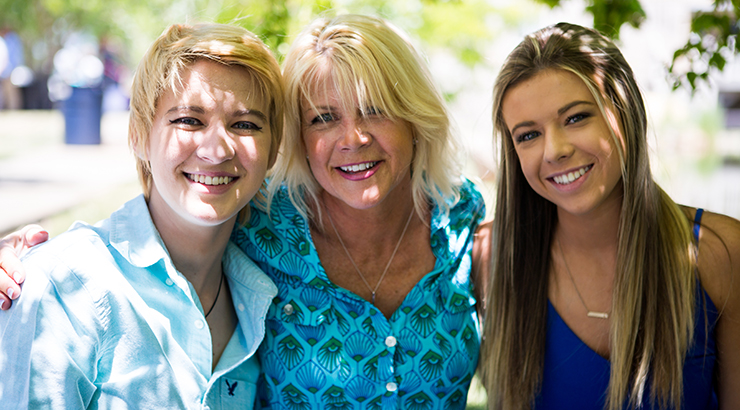Creating Healthy Relationships

As a parent, you want to have a healthy, loving relationship with your teen. What makes a relationship healthy? Healthy relationships are based on mutual respect, effective communication, and both parties feeling heard and cared for when expressing feelings. A positive and healthy relationship with your teen will also help you to be able to influence your teen to make good decisions. In fact, a loving relationship can be a powerful motivator for change.
Relationship Damage Control
Many parents of troubled teens feel like they have little or no influence. These teens may prove that their parents have lost all control by engaging in behaviors such as running away, disrespecting parents and others, skipping school, threatening violence or acting out violently, self-harming, making or completing suicide threats or attempts, abusing substances, or being sexually promiscuous.
When your teen acts out in any of these ways, you may feel powerless and frustrated. As a result, you may end up trying to motivate your teen by using controlling behaviors. While these controlling behaviors may sometimes be effective in getting your teen to do what you want, they ultimately damage the relationship you want with your teen.
These relationship-damaging behaviors are criticizing, blaming, complaining, nagging, threatening, punishing, bribing, playing the victim, ignoring, and minimizing.
You can do relationship damage control by paying attention to the controlling behaviors you use in your relationship with your teen, and how that affects him/her and you. This will help you make changes where necessary.
One of the keys to building a healthy relationship with your teen is to remember that you can control your own thoughts and actions, but not the thoughts and actions of your child. With practice, you can care about your challenging teen and learn to focus on the things you can control (your own thoughts, actions and feelings). This will help you discover new ways to influence your teen to make positive decisions.
Building a Healthy Relationship
As you practice focusing on controlling your responses to your teen’s inappropriate behaviors, here are some ways you can build a healthy relationship:
- Accept that the topics of most major conflicts in relationships don’t change, so the way we respond to the conflicts is what needs to change. This means stopping the controlling behaviors outlined above.
- Keep the conversation in the here-and-now (avoid the past and future). Instead of saying “I’ve told you a thousand times”, “You are always doing that”, or “If you keep doing that, you will end up miserable”, keep the conversation in the present. You can say instead, “It sounds like you made a mistake. What are you thinking and feeling?” Or you might say, “What do you need?” or “How is this affecting you today?”
- Focus on the person, not the problem. Focus on your teen’s feelings, thoughts and experiences more than any problem, which can temporarily blind your vision. For example, sincerely say “I sense you’re feeling ____ because you experienced ____. Am I understanding you correctly?” Show love and concern through your tone of voice and your body posture. Wait to have the conversation until you can be genuinely interested, kind and patient.
- Focus on the process of the conversation, not the content of the conversation. Focusing on content is an easy mistake to make. Your teen may try to get you into a power struggle and deliberately set up an argument. If you focus on how things are communicated rather than what is communicated, you will find yourself “winning” more arguments. This is because you’re focusing on the relationship, not the dirty details. For example, you might say “The way you’re telling me to _____ seems out of character for you. What’s going on?”
- Compromise with your teen. Rather than using controlling tactics to get him/her to do what you want, work to compromise. This could take a while but don’t leave until a compromise is reached.
Remember that it takes time to build a healthy relationship. Be patient with yourself and your teen. Also, spend time together and do things together you both enjoy. Show interest in any hobbies or interests your teen is pursuing. As you use the tips above and show love and concern for your teen, your relationship will get stronger and healthier and your ability to influence your teen in positive ways will increase.
Identify Your Controlling Behaviors
The controlling behaviors outlined above can sabotage the relationship you want with your teen. Identify your controlling behaviors by copying the chart below. This will help you recognize when you use these behaviors so you can stop using them and focus on building a healthy relationship instead.
| Ways I Control and Sabotage | When I Use it to Try and Motivate My Teen | How My Teen Responds |
| Criticizing | ||
| Blaming | ||
| Complaining | ||
| Nagging | ||
| Threatening | ||
| Punishing | ||
| Bribing | ||
| Playing the Victim | ||
| Ignoring | ||
| Minimizing |